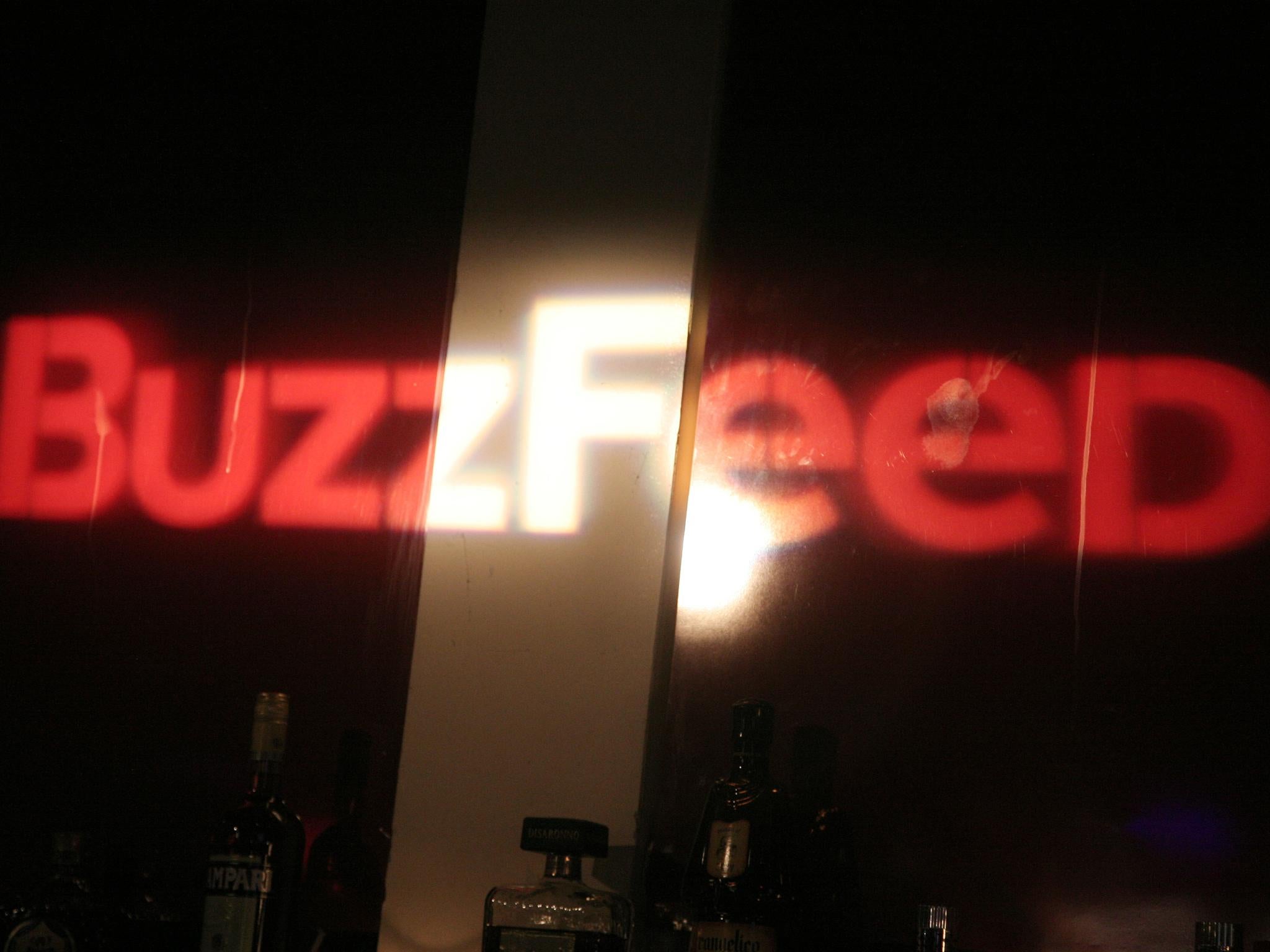Buzzfeed accused of 'stealing ideas' by YouTube personality
Akilah Hughes launched a petition directed at the media organisation's advertisers

Internet personality Akilah Hughes has launched a campaign against BuzzFeed, in which she accuses it of stealing ideas for videos without crediting or compensating the original creators.
“BuzzFeed has been caught repeatedly stealing ideas, jokes, bits, gags and therefore money from prominent YouTube creators. And we’ve all had enough,” Hughes wrote on her website. “It’s time to #StopBuzzThieves.”
Hughes – whose work has appeared on Fusion, Essence, MTV and many other major media outlets – started a corresponding petition addressed to BuzzFeed’s advertisers that highlighted the instances in which she alleges the media organisation steals ideas for video content.
The most recent example included in the petition refers to a video about introversion published by BuzzFeed Motion Pictures on Wednesday. The original video, posted on Hughes’ YouTube channel in January 2015, depicts a weekend in the life of an introverted woman. The video published by BuzzFeed Motion Pictures on Wednesday presents a similar, albeit condensed, concept.
“It's a video that has exactly two jokes that are visually represented the exact same way that I made the two jokes,” Hughes told The Independent. “In the span of 25 minutes, it had nearly 100,000 views, whereas mine over the course of two years has 50,000. And so i'm watching dollars add up.”
Zach Evans, who produced the video for BuzzFeed Motion Pictures, apologised to Hughes on Twitter.
“Hey, I’m sorry about this whole situation,” he wrote. “I promise you it was a coincidence. I have never/would never rip someone off.”
BuzzFeed’s video has since garnered almost 450,000 views at the time of writing.
Hughes said she first noticed a problem in 2015 when BuzzFeed ran a series called, “Ask an Asian”, where comedian Jenny Yang answers questions as the sole representative of her race.
“I had a series called, ‘How Black people Feel About…’, which is the exact same concept,” she said. “I did mine in 2013, theirs came out in 2015.”
Other examples cited in the petition include BuzzFeed’s “Can You Waffle It?”, which bears resemblance to the blog and book Will It Waffle?; TigerTomato’s pancake art channel and BuzzFeed’s “Artists try pancake art sponsored by Holiday Inn Express”; and “100 Years of Beauty” on Cut.com alongside BuzzFeed’s “100 Years of…” series.
Hughes’ experience is similar to that of USC film student Savannah Hemmig, who went public with a post detailing an instance when BuzzFeed Video published a short which she says is similar to one she submitted as part of a summer internship application.
Hemmig said she applied for the internship in March after a recruiter from the Los Angeles-based BuzzFeed Motion Pictures approached her at a campus event. She submitted her short film, The Diagnosis, which presented a scenario wherein diabetes has the same stigma as mental health issues.
Hemmig ultimately did not get the internship, so she was shocked to see a video with a concept she found similar to hers published by the website. She became aware of the video after a friend posted BuzzFeed’s “If Physical Health Problems Were Treated Like Mental Health Problems” to her Facebook page, pointing out the apparent likeness.
“My stomach just dropped because I immediately knew something was wrong,” she recalled. “There were striking similarities that you couldn’t ignore. And the timing was very concerning to me.”
Hemmig said she attempted to notify BuzzFeed through their complaint channels, but did not hear back.
A major criticism of BuzzFeed from Hughes focuses on how the company allegedly takes advantage of young content creators.
“I think it’s easier to take advantage of young people in this new media world,” she said. “Most of us don’t how to get an intellectual property lawyer. A lot of times people just want to get in the door with companies that are well known and they don’t even realise they are being taken advantage of, and that their ideas are being stolen.”
Hughes also claimed that young people of colour are particularly vulnerable to situations where they are taken advantage of by media companies.
"What's sad is that, as black people, as people of colour, as disadvantaged LGBTQ and young people, you get used to getting taken advantage of," she said. "It doesn't even enter the realm of possibility that you would be getting paid for your ideas."
Representatives for BuzzFeed did not immediately respond to a request for comment. However, Ella Mielniczenko, executive producer at BuzzFeed Video, seemed to address the accusations in a screengrab posted to Twitter.
“Each producer at BuzzFeed Video conceptualises, brainstorms, writes, directs, acts in, and edits their own videos,” the post read. “Any similarities, while unintentional, are unfortunate casualties of creating in the same space.”
BuzzFeed previously faced scrutiny in its editorial arm in 2014, when viral politics editor Benny Johnson was exposed as a plagiarist and subsequently fired. He authored 41 posts that featured the unattributed work of other writers.
“Plagiarism, much less copying unchecked facts from Wikipedia or other sources, is an act of disrespect to the reader,” editor Ben Smith said in a letter to readers. “We are deeply embarrassed and sorry to have misled you.”
Hughes petitioned advertisers to pivot their support from BuzzFeed to the content creators themselves, and partner with YouTube and talent agencies to ensure their work is protected and they are compensated.
“By continuing to support BuzzFeed Video, you are complicit in the repeated, egregious theft of hundreds of millennials’ intellectual property,” Hughes concludes. “We’re not going to cower because of the size or reach of BuzzFeed. We refuse to let their creatively bankrupt business model become the new status quo.
“The era of BuzzFeed thriving on the backs of uncompensated, young talent is over.”
Join our commenting forum
Join thought-provoking conversations, follow other Independent readers and see their replies
Comments
Bookmark popover
Removed from bookmarks